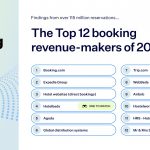When chatting recently with a corporate HR executive from a leading international hotel chain, we got onto the subject of resumes and the enormous volume of poor resumes (CV’s) we all receive from candidates.
“Did they learn nothing at school?”, she joked, but more seriously said “resume fatigue is a huge problem for all our HR teams and hiring managers – it is surprising anyone gets a new job!”
This really did ring true with me as it is a huge problem for all recruiters, so what is “resume fatigue” and how does it affect your chances of getting a new job?
Well, place any job advert online and wait for the avalanche of garbage to flood in! Applications from unqualified candidates sending poorly presented documents that are ill-conceived and constructed.
Now pity the HR Director or Recruiter who has to wade through the hundreds (sometimes thousands!) of applicant resumes, many containing incomplete, incorrect, inaccurate or just plain missing information. Then of course there are the totally irrelevant ones – you might be amazed to learn of the number of engineers, nurses and shop assistants who apply for luxury hotel Executive Chef positions!
And don’t think that these awful resumes are restricted to the lesser skilled, more menial positions. No, this disease does not discriminate between Room Attendants and CEO’s.
It is easier than ever to apply for a job so a single advert can generate hundreds of applications – in the old days, at least they had to get a stamp and pop it in the post box, which did stop some applications!
Why do you think they say a recruiter spends just 6 or 7 seconds for an initial screening of a candidate resume/CV? Resume Fatigue!
This is a real problem for candidates and employers.
For candidates, your application won’t pass the 6 second screening stage, so any time you did take to apply is wasted and presumably, wondering why you are constantly being overlooked!
It becomes a problem for employers if the candidate market is scarce, or there is a particularly important or difficult role to fill.
So how do you get noticed amongst the mass of mediocrity? How do you make an impression and ensure your resume gets a second look?
Well, it’s quite simple really…
The resume (CV) is the very first chance to make a good impression, so give yourself every opportunity by presenting yourself and your experience in the best possible light.
Here are a few key factors to consider when constructing the resume for that dream job: –
The traditional resume/CV should be well written, structured and above all else, accurate and truthful – lie and you will be caught out eventually!
Make everything easy for the recruiter – information, formats, address the criteria – this alone will substantially increase your potential to move forward in the process.
Keep the resume to a maximum of 4-5 pages – the recruiter has to gain a sense of the candidate in a very short time and cannot (and will not) read hundreds of 10-15 page resumes. Similarly, a 1 page resume is not enough to provide any useful information for most positions (unless perhaps you are in the USA where this approach is more common).
Always keep it formal in tone and language – do not use slang, and if English is not your first language have someone else read over it to check meaning and accuracy.
Provide detailed personal information if requested – the information required by the recruiter, and governed by local legislation, does vary a lot between regions and jurisdictions. Make it easy for the recruiter to consider you by covering as much information as possible – even where it may not be politically correct to ask in normal society or life – this can be very important for international appointments, where visa or package restrictions apply – although not necessarily required for local job applications. Age is always a sticky subject. Make no mistake, ageism is alive and well, but not putting your date of birth on your resume will not protect you from this problem – in fact it can highlight it, apart from which it is always pretty easy to work out…
Write a brief summary of each job in the past 10-15 years with no more than 6 lines in bullet points. Don’t incorporate your job description in your resume! If you have experience prior to this just summarise the important details – if you are a General Manager, we don’t need to see half a page on your time as an Apprentice Dishwasher as that has little relevance to your role today.
Focus on your achievements and accomplishments not job duties.
Get rid of lengthy objectives at the start of your CV – they are what you want rather then what the employer wants, however, do add a brief profile section that summarises who you are, your strengths, experience and what you have to offer. A well written profile can say a lot about you and is a real opportunity to present yourself positively and outline your abilities as a candidate.
It is most effective to present your resume in ‘word’ or ‘pdf’ format with bullet points rather than as a lengthy essay. Avoid fancy fonts which can often be unreadable on a computer screen.
Remember, long resumes dilute the impact of the content, may make you look long winded and present you as someone unable to edit important information.
Ensure your employment dates are correct and reflect the real time you have worked for each and every employer. Don’t pretend to have continuous employment because you think it looks better only for it to be discovered as untrue when background/reference checks are carried out.
If you have employment gaps show them and explain them – in our industry this is natural.
Make sure you address the information requested in the advertisement adding that specific information to your standard resume.
Have website/links to your previous and current employers The reader may not know each place you have worked and is generally not interested enough to search for it, so make it easy for them.
Provide current and future contact details if you are in transition. In today’s world contact details should include:-
Email address (ideally 2 in case one has problems)Contact phone number – mobile preferablySkype/WhatsApp/WeChat id’sLinks to any personal website, etc.
If you choose to include a picture in your CV (and it can be useful), make sure it is of good quality and in proper attire. Our industry is still a very conservative one and this is the basic expectation for a job application whether you work in a luxury city hotel or casual resort. Resumes that have photos of applicants in T-shirts, shorts, on sailing boats, with friends drinking cocktails and so on, do not provide the first impressions that you may need. Remember a picture is worth a thousand words…
Provide a time frame of your availability and your current status whether you are still employed, have already resigned or out of a job. Many times, people submit resumes that state employment dates when they have been out of a job for months or alternatively are not available for 6 months.
Last, but not least, make sure you run the spell check! It is so easy to do but it is still amazing how many people seem to miss this most basic of steps.
In today’s connected world with social media it is very easy to carry out some basic background checks, so always be aware of what you have uploaded to LinkedIn, Twitter, Facebook, Instagram, and check your privacy settings!!
Follow these simple guidelines and you will exponentially increase your chances of being noticed, stand out from the crowd and avoid the trash button. Don’t become a victim of resume fatigue!
About the Author
Tim Johns is a former Hotelier and Managing Partner with Elite Search – a leading hospitality recruitment firm. For more information about Tim and Elite Search visit http://www.elitesearch.com.au and The Elite Hotelier http://www.elitehotelier.net






























